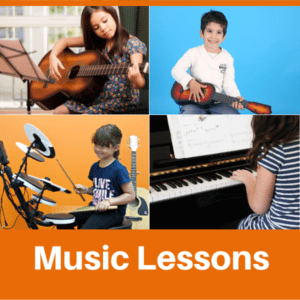
Written by: Kelly Letros – Behaviour Therapist
During spring break, I was enthused to spend my week with children who had registered for a week-long camp program. Daily, they were running to and fro through the corridors of the centre, from one pre-planned activity to another. It was delightful to hear them squealing and giggling (for the most part!)
Things usually run smoothly for camp facilitators and educators who have worked tirelessly to program a fun-filled and engaging week. I say usually because there is always that dreaded period of time between planned activities that things seem to go awry. It is actually predictable.
We call them TRANSITIONS, and they are a bad, bad word for educators and child care workers everywhere. During these transitions, which can range from 1min to 10min, children seem to lose their minds. They get antsy, skittish, they seem dazed and confused that there are moments or lapses in their days where nothing may be going on or happening. To entertain themselves, they start taunting, teasing, running mad circles, scaling walls like superheroes all in a frenzied circus display of madness because the alternative for them is very, VERY scary. They cannot sit still in silence with nothingness in front of them.
So how did children become be so intolerant of a few moments of nothingness? Perhaps we are to blame.
I see, in some schools, transitions being rushed, teachers being urged by directors to plan activities back to back with no gaps to prevent the dreaded upcoming transition. But, is this the right thing to do? I feel, we are truly reinforcing their inability to deal with the empty and unstructured moments life dishes us. Inevitably, these children are going to be required to sit for tests in high school and family engagements where they are required to be a quiet observer. Imagine a child becoming frenzied at a funeral? They need to learn how to occupy their own minds in times when life is not structured. They must develop the skill to have healthy mental monologues in their minds to fill these gaps in time. If we keep quickening the pace of our transitions in schools just to avoid our kids from going bananas, we are really doing a disservice to them.
With our culture’s addiction to images and stimuli via “on-demand entertainment”, how are kids suppose to cope with the media-free moments of life? Now, this is a skill we surely have a responsibility to teach them! We should be prompting them to exercise their minds in these moments. By teaching them how to occupy themselves, they can, in turn, help themselves to self-regulate in moments of boredom in healthy ways.
Remember, decades ago, we did not have the same battle as the one which digital media has placed before our kids today. We had no choice but to learn how to count sheep, or white cars passing by our car on long trips. We played hangman on notepads in the back seats of cars. We developed the necessary brain power to take life’s transitions, such as car or subway rides, and pass time quietly in our heads. We all, no doubt, employed a whole bunch of weird and wacky goodness to deal with moments when what lay before us in life seemed dull. We learned how to be silent with grace and our kids need to acquire this very same skill. We can take these memories of what we did to pass time years ago and hand them down to the next generation.
The skill your child learns from sharing these fond memories with them may provide them with a necessary skill for navigating many upcoming moments in their life.
For more educational posts visit our Educational Posts Page
To keep up with new blog posts you can follow us on Facebook or Instagram
Or, sign up for our newsletter below for school updates.
Get updates on new classes, hosted events, and more.










